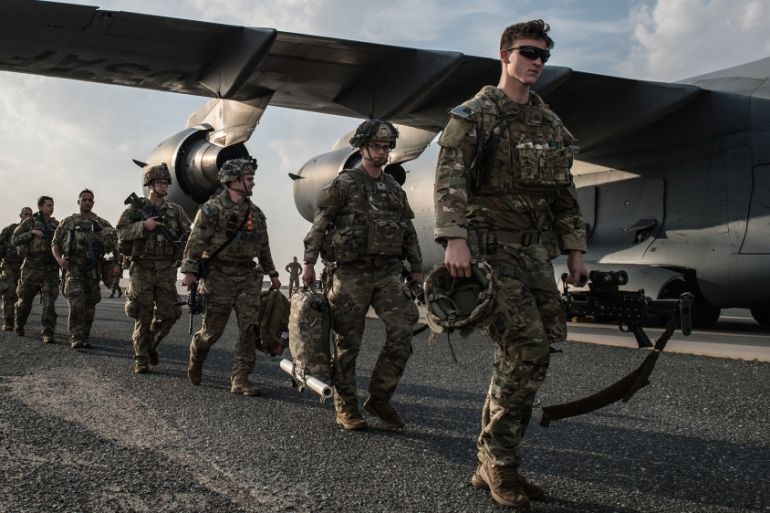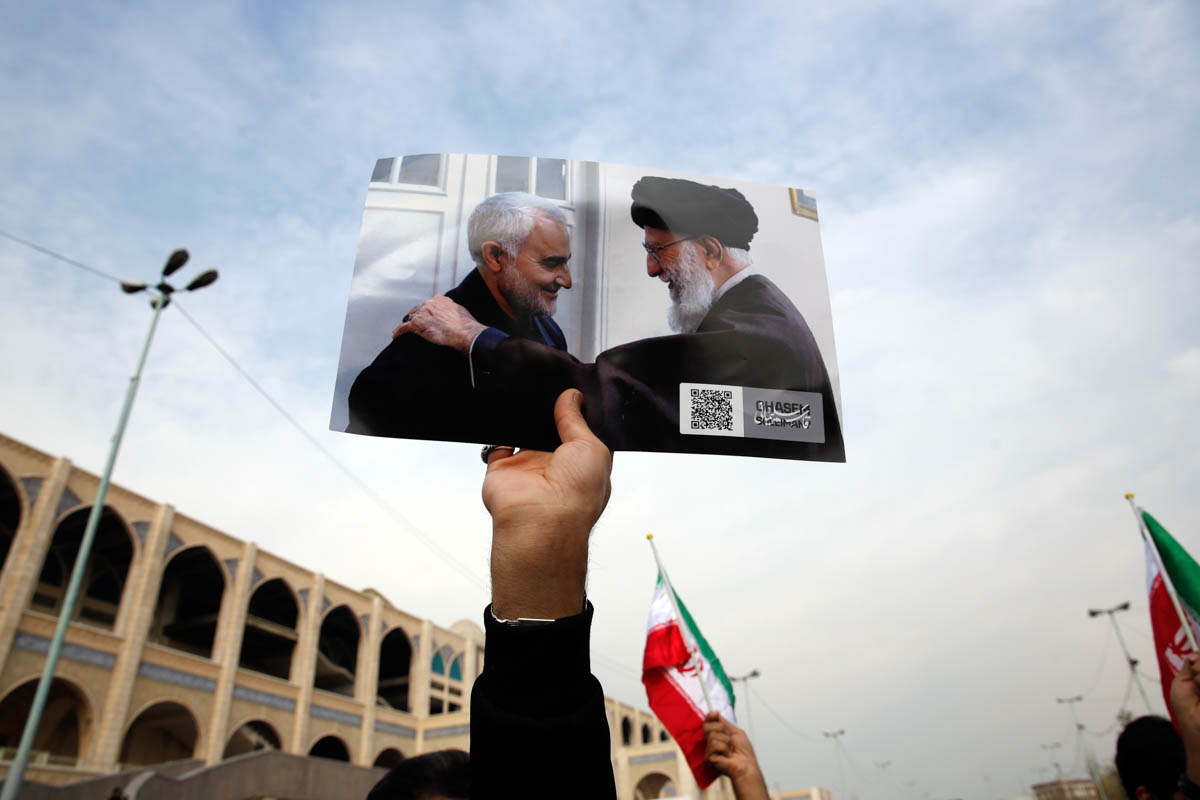Soleimani killing: US deploying 3,000 more troops to Middle East
Deployment comes after Trump ordered killing of Iranian military commander Qassem Soleimani.

The United States is sending nearly 3,000 additional troops to the Middle East from the 82nd Airborne Division as a precaution amid rising threats to American forces in the region, US officials have said.
The move comes after US President Donald Trump ordered the killing of Iranian military commander Qassem Soleimani.
Keep reading
list of 3 itemsWho was Iran’s Qassem Soleimani?
Qassem Soleimani assassination: Trump, Pompeo defend decision
Soleimani, the head of Iran’s elite Quds Force, was killed by US forces in an air raid at Baghdad International Airport early on Friday. Abu Mahdi al-Muhandis, the deputy commander of Iran-backed militias known as the Popular Mobilisation Forces (PMF) was also killed. Iran has threatened retaliation.
US officials have defended the move, saying Iran was planning imminent action that threatened American citizens. He has not elaborated on the details of any plan.

The additional troops would be joining the roughly 750 forces that were sent to Kuwait earlier this week, according to officials, speaking to news agencies on the condition of anonymity. Those troops were deployed after protesters stormed the US embassy compound in Iraq.
US officials told Reuters News Agency earlier this week that thousands of additional troops could be sent to the region and had been told to prepare to deploy.
Major escalation
The deployment of extra troops reflects concern about potential Iranian retaliatory action for the assassination of Soleimani. But it also runs counter to Trump’s repeated push to extract the US from Middle East conflicts. Prior to this week’s troop deployments, the administration had sent 14,000 additional troops to the Middle East since May, when it first publicly claimed Iran was planning attacks on US interests.
The reinforcements took shape as Trump gave his first comments on the attack, declaring that he ordered the killing of Soleimani because he had killed and wounded many Americans over the years and was plotting to kill many more. “He should have been taken out many years ago,” he added.
The assassination marked a major escalation in the conflict between Washington and Iran, as Iran promised “harsh retaliation” for the killing of the senior military leader. The two nations have faced repeated crises since Trump withdrew from the 2015 nuclear deal and imposed crippling sanctions.
The US urged its citizens to leave Iraq “immediately” as fears mounted that the attack and any retaliation by Iran could ignite a conflict that engulfs the region.

Secretary of State Mike Pompeo defended the attack as “wholly lawful”, saying Soleimani posed an “imminent” threat against the US and its interests in the region.
“There was an imminent attack,” Pompeo told Fox News. “The orchestrator, the primary motivator for the attack, was Qassem Soleimani.”
The White House did not inform members of Congress before the attack. It was expected to give classified briefings to members of Congress and staff in the afternoon. Defense Secretary Mark Esper notified House Speaker Nancy Pelosi of the attack shortly before the Pentagon confirmed it publicly.
Pompeo called world leaders on Friday to explain and defend Trump’s decision to order the air raid that has sparked fears of an explosion of anti-American protests as well as more violence in the already unstable Middle East.
The State Department said Pompeo had on Friday spoken with top officials in Afghanistan, the United Kingdom, China, France, Germany and Pakistan.

In his calls with the British and German foreign ministers as well as China’s state councillor, Pompeo stressed that Trump acted to counter an imminent threat to American lives in the region but also that the US is committed to “de-escalation” of tensions, according to the department’s summaries of the conversations.
De-escalation was not mentioned in the department’s summary of his call with the French foreign minister, nor in his calls with Afghanistan’s President Ashraf Ghani or the Pakistani military chief of staff. In those calls Pompeo “underscored the Iranian regime’s destabilising actions through the region and the Trump Administration’s resolve in protecting American interests, personnel, facilities and partners,” the department said.
Trump opted not to play a round of golf on Friday, and he was not expected to be seen publicly until he travels to Miami for an afternoon event for his re-election campaign.